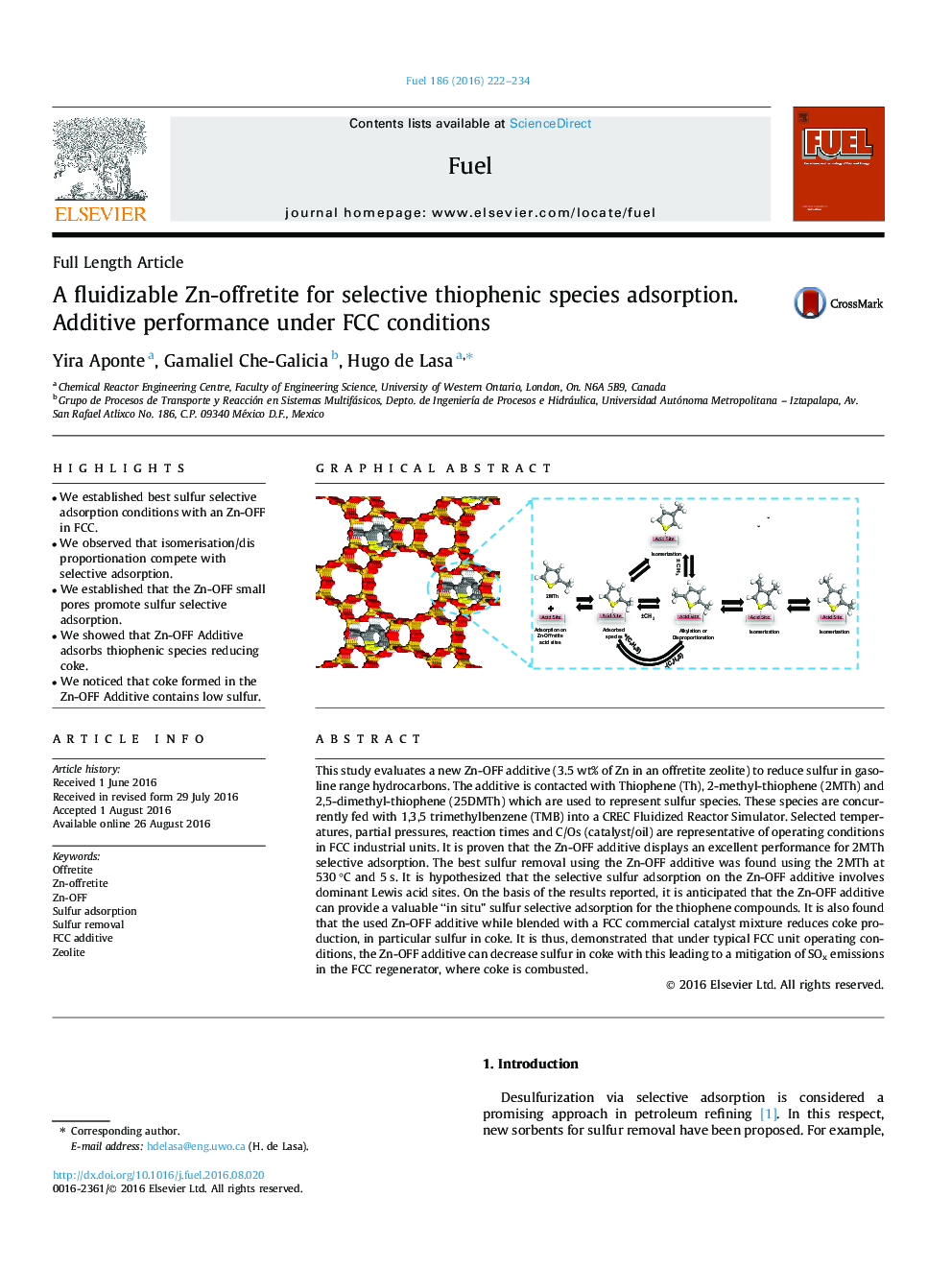| Article ID | Journal | Published Year | Pages | File Type |
|---|---|---|---|---|
| 6476046 | Fuel | 2016 | 13 Pages |
â¢We established best sulfur selective adsorption conditions with an Zn-OFF in FCC.â¢We observed that isomerisation/disproportionation compete with selective adsorption.â¢We established that the Zn-OFF small pores promote sulfur selective adsorption.â¢We showed that Zn-OFF Additive adsorbs thiophenic species reducing coke.â¢We noticed that coke formed in the Zn-OFF Additive contains low sulfur.
This study evaluates a new Zn-OFF additive (3.5 wt% of Zn in an offretite zeolite) to reduce sulfur in gasoline range hydrocarbons. The additive is contacted with Thiophene (Th), 2-methyl-thiophene (2MTh) and 2,5-dimethyl-thiophene (25DMTh) which are used to represent sulfur species. These species are concurrently fed with 1,3,5 trimethylbenzene (TMB) into a CREC Fluidized Reactor Simulator. Selected temperatures, partial pressures, reaction times and C/Os (catalyst/oil) are representative of operating conditions in FCC industrial units. It is proven that the Zn-OFF additive displays an excellent performance for 2MTh selective adsorption. The best sulfur removal using the Zn-OFF additive was found using the 2MTh at 530 °C and 5 s. It is hypothesized that the selective sulfur adsorption on the Zn-OFF additive involves dominant Lewis acid sites. On the basis of the results reported, it is anticipated that the Zn-OFF additive can provide a valuable “in situ” sulfur selective adsorption for the thiophene compounds. It is also found that the used Zn-OFF additive while blended with a FCC commercial catalyst mixture reduces coke production, in particular sulfur in coke. It is thus, demonstrated that under typical FCC unit operating conditions, the Zn-OFF additive can decrease sulfur in coke with this leading to a mitigation of SOx emissions in the FCC regenerator, where coke is combusted.
Graphical AbstractDownload high-res image (244KB)Download full-size image
